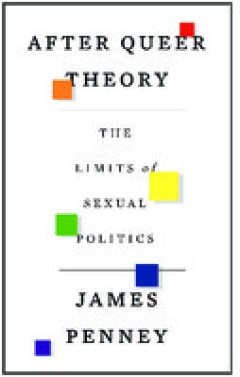Filter by

Advanced Testing and Characterization of Bituminous Materials, Two Volume Set
Bituminous materials are used to build durable roads that sustain diverse environmental conditions. However, due to their complexity and a global shortage of these materials, their design and technical development present several challenges. Advanced Testing and Characterisation of Bituminous Materials focuses on fundamental and performance testing
- Edition
- -
- ISBN/ISSN
- 9780429151712
- Collation
- 1318 hlm; ill., lamp.,
- Series Title
- -
- Call Number
- -

After the "Speculative Turn": Realism, Philosophy, and Feminism
Recent forms of realism in continental philosophy that are habitually subsumed under the category of “speculative realism,” a denomination referring to rather heterogeneous strands of philosophy, bringing together object-oriented ontology (OOO), non-standard philosophy (or non-philosophy), the speculative realist ideas of Quentin Meillassoux and Marxism, have provided grounds for the much n…
- Edition
- -
- ISBN/ISSN
- 9780998237534
- Collation
- 200
- Series Title
- -
- Call Number
- -

After Queer Theory
After Queer Theory makes the provocative claim that queer theory has run its course, made obsolete by the elaboration of its own logic within capitalism. James Penney argues that far from signalling the end of anti-homophobic criticism, however, the end of queer presents the occasion to rethink the relation between sexuality and politics. Through a critical return to Marxism and psychoanalysis …
- Edition
- -
- ISBN/ISSN
- 9781849649858
- Collation
- -
- Series Title
- -
- Call Number
- -

After Mosul. Re-Inventing Iraq
- Edition
- -
- ISBN/ISSN
- 9788867056347
- Collation
- -
- Series Title
- -
- Call Number
- -
- Edition
- -
- ISBN/ISSN
- 9788867056347
- Collation
- -
- Series Title
- -
- Call Number
- -

After Ethnos
For most of the twentieth century, anthropologists understood themselves as ethnographers. The art of anthropology was the fieldwork-based description of faraway others—of how social structures secretly organized the living-together of a given society, of how a people had endowed the world surrounding them with cultural meaning. While the poetics and politics of anthropology have changed dram…
- Edition
- -
- ISBN/ISSN
- 9781478090854
- Collation
- -
- Series Title
- -
- Call Number
- -

After Corporate Paternalism : Material Renovation and Social Change in the Ti…
In this ethnographic study of post-paternalist ruination and renovation, Christian Straube explores social change at the intersection of material decay and social disconnection in the former mine township Mpatamatu of Luanshya, one of the oldest mining towns on the Zambian Copperbelt. Touching on topics including industrial history, colonial town planning, social control and materiality, gender…
- Edition
- -
- ISBN/ISSN
- 9781800734159
- Collation
- -
- Series Title
- -
- Call Number
- -

After 9/11: Leading Political Thinkers about the World, the U.S. and Themselves
After 9/11 presents 17 interviews with America´s leading political thinkers. Renowned experts such as Zbigniew Brzezinski, Francis Fukuyama, and Noam Chomsky discuss the nation’s foreign policy in the post-9/11 world. Yet, they also comment on their own role in US society – and the mounting challenges they face today. The conversations illustrate the hopes and expectations, the anger and f…
- Edition
- -
- ISBN/ISSN
- 9783866496859
- Collation
- -
- Series Title
- -
- Call Number
- -

Afropolitan Horizons : Essays toward a Literary Anthropology of Nigeria
Nigeria is a country shaped by internal diversity and transnational connections, past and present. Leading Nigerian writers from Chinua Achebe, Amos Tutuola and Wole Soyinka to Chimamanda Ngozi Adichie and Teju Cole have portrayed these Nigerian issues, and have also written about some of the momentous events in Nigerian history. Afropolitan Horizons discusses their work alongside other novelis…
- Edition
- -
- ISBN/ISSN
- 9781800732995
- Collation
- -
- Series Title
- -
- Call Number
- -

Advanced Technologies in Hydropower Flow Systems
Hydropower is an essential part of the renewable energy sector. High efficiency, immediate availability, and safe operation of hydroelectric power plants are the three key issues in recent developments in the hydropower sector. This book brings together the latest achievements addressing these key factors. In addition, one contribution deals with the alternative harvesting of hydro energy from …
- Edition
- -
- ISBN/ISSN
- 9783036546940
- Collation
- -
- Series Title
- -
- Call Number
- -

AfroAsian Encounters
With a Foreword by Vijay Prashad and an Afterword by Gary Okihiro How might we understand yellowface performances by African Americans in 1930s swing adaptations of Gilbert and Sullivan's The Mikado, Paul Robeson's support of Asian and Asian American struggles, or the absorption of hip hop by Asian American youth culture? AfroAsian Encounters is the first anthology to look at the mutual influen…
- Edition
- -
- ISBN/ISSN
- 9780814769270
- Collation
- -
- Series Title
- -
- Call Number
- -
 Computer Science, Information & General Works
Computer Science, Information & General Works  Philosophy & Psychology
Philosophy & Psychology  Religion
Religion  Social Sciences
Social Sciences  Language
Language  Pure Science
Pure Science  Applied Sciences
Applied Sciences  Art & Recreation
Art & Recreation  Literature
Literature  History & Geography
History & Geography